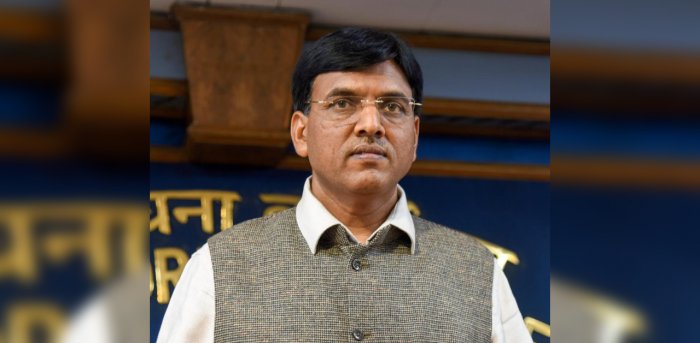Image courtesy: PTI Photo
On September 10, 2020, the Union Minister of Shipping, launched ‘SAROD-PORTS’ (Society for Affordable Redressal of Disputes – Ports) for dispute resolution in Maritime Sector, comprising of Major Ports, Non-Major Ports and PPP players operating at Major Ports. The launch of ‘SAROD-Ports’ is a much needed alternative step to resolve/reduce the disputes in the ports sector in less time and in a cost-effective manner. According to ICRA, this is a positive development for the sector. SAROD-Ports will consist of members from Indian Port Association (IPA) and Indian Private Ports and Terminal Association (IPPTA) and the empanelled arbitrators will comprise of retired chairman/deputy chairman of Major Port Trusts or retired or serving members of the Judiciary, Civil Servants, Public Sector undertakings who have experience in the port sector and arbitration process.
Giving further insights, Mr K. Ravichandran, Senior Vice President and Group -Head, ICRA Ratings says, “The credit profile of several port sector entities has been impacted by large contingent liabilities arising from prolonged disputes and hence the launch of SAROD-Ports should be credit positive for the sector. However, the success of the mechanism remains to be seen, as it will depend on the willingness of existing concessionaires to opt for it. This should be more useful for disputes, where the quantum of liability is smaller and it will be prudent for both parties to settle in a speedy manner. Further, the provision to bring in experts in arbitration process should also be a favourable factor, as industry members have at times cited dissatisfaction with arbitrators not having sufficient understanding of the port sector”.
In the last two decades, there has been increasing shift towards PPP projects and landlord port model by the Major Ports, where terminals for specific cargo segments are developed and operated by private players on BOT basis. However, in many cases there have been disputes with the Major Port Trust related to terms of concession including revenue share/royalty; the meeting of minimum guaranteed performance standards and volumes; facilities and maintenance work to be done by the Port Trust etc. apart from disputes with regulatory authorities like TAMP. These disputes in many instances have dragged on for several years, as the parties may first go for arbitration and then fight the cases in higher courts. This results in high arbitration and litigation costs for both the ports as well as the private players. The launch of ‘SAROD-Ports’ is a step to address such disputes through an alternative route to ensure faster resolution and in a cost-effective manner.
The SAROD mechanism has already been in place for some time in the road sector. The SAROD - Roads, comprises of members from NHAI and NHBF and has empanelled arbitrators. There are set rules, with regards to the number of arbitrators for a case, fees to be paid, provision for appointment of experts etc. The system was put in place to bring down the cost of arbitration and to ensure a faster resolution. Over the last few years, there has been a fair share of disputes between NHAI and private players being resolved through the mechanism and thereby reducing pendency and reducing the cost of arbitration.
ICRA notes that the initiative is targeted towards attracting more private sector investments and should be favourable for the sector if it is able to resolve disputes at low costs and in a time-bound manner. Mr Sai Krishna, Assistant Vice President and Associate Head, ICRA ratings mentioned said, “The port sector’s ability to attract investments will also be contingent on the resolution of policy issues which led to disputes in the first place. Further, while the government has announced several policy measures over the last few years, they are in various stages of implementation. Early implementation of the planned measures, the passage of important bills like “The Major Port Authorities Bill, 2019” which will allow more flexibility to Major Ports and timely execution of projects under Sagarmala initiatives will be crucial to attract additional private sector investments.”




















